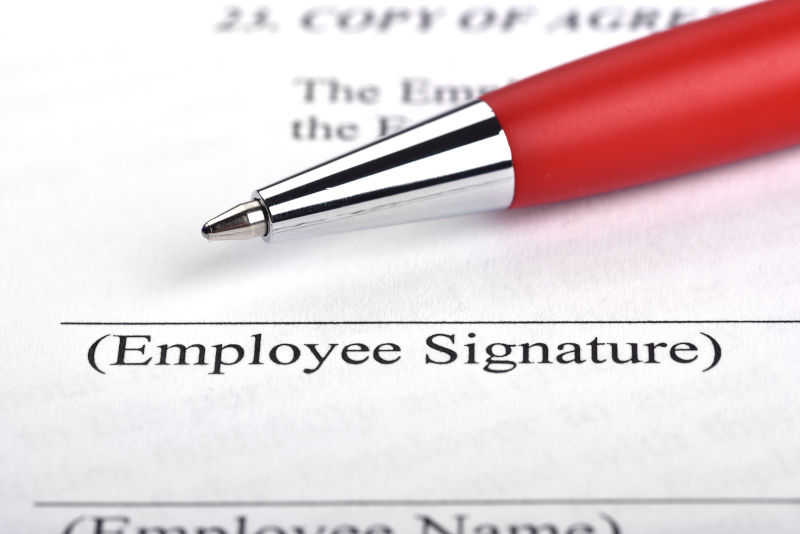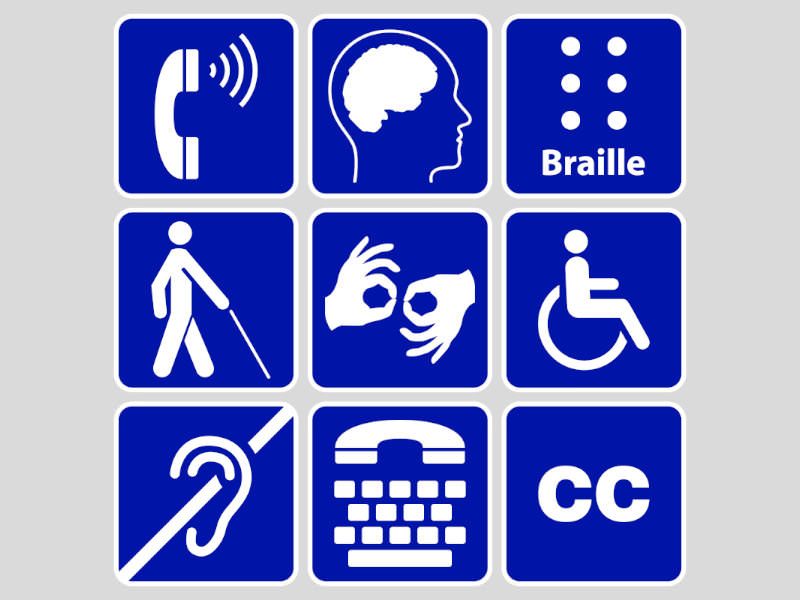We all like to think we’d do the right thing if we saw a crime or injustice. In a work environment, speaking out the actions (the inaction) of your employer is referred to as ‘Whistleblowing’, and is an important step in preventing workplace malpractice.
However, we understand it can feel like a big step to take. How should I go about it? What happens if I get fired? Will people at work treat me differently?
If you have suffered detrimental treatment following a whistleblowing procedure, Truth Legal can provide help and guidance. If you have suffered an unfair dismissal or other negative consequences from speaking out, we may be able to secure compensation.
What is whistleblowing?
Whistleblowing is speaking out against wrongdoing in your workplace. The term is really a nickname for making a protected disclosure. In other words, disclosing certain information in a way which qualifies you for legal protection.
If you qualify for this legal protection, you have the right to claim compensation for negative consequences which you may suffer as a result. This could be losing your job or receiving detrimental treatment from your employer or co-workers.
If you have already suffered negative consequences from a disclosure you made, you should seriously consider making a claim.
Making a disclosure is often the right thing to do and so you should not lose out from doing it. There could be serious consequences to your career and finances from making a disclosure and making a claim for compensation can ensure this injustice does not stand.
What should I do if I am worried about wrongdoing in my employer’s organisation?
Discovering that your employer may be involved in some wrongdoing can naturally lead to a great deal of uncertainty. We explore what counts as ‘wrongdoing’ below, but you might be concerned about:
- Whether you have understood the situation correctly.
- Whether what you have witnessed is illegal or in breach of your employer’s legal duties.
- Whether, by disclosing what you have witnessed, you might cause a problem for one of your colleagues, be considered a trouble-maker and be treated differently at work.
- Whether your employment will be terminated because of what you have seen or disclosed.
Depending on your position in the company, you might be obliged to make a disclosure in some circumstances, particularly if you are employed in a senior or director-level position.
However, legal protection for whistleblowing is not guaranteed. You must meet certain requirements to benefit from it. This is why, if you have not yet spoken out against your employer, it is important to seek legal advice before making a disclosure.
Navya Shekhar, Head of Employment Law at Truth Legal, provides expert advice to individuals concerning whistleblowing claims:
“If you become aware of something at work that gives you serious cause for concern, it might be a good idea if you were to call me to discuss the matter.
“Deciding whether to “blow-the-whistle” can be a very stressful experience. Talking to a lawyer, in confidence, can help you to identify whether you may have a claim for whistleblowing, as well as informing you how best to manage the process.
“In addition, whistleblowing claims should be handled professionally, and expertly, in order to ensure that individuals secure the best possible compensation for their loss following a claim for a whistleblowing detriment or dismissal.”
Can I make a whistleblowing claim?
There are two general kinds of whistleblowing claim:
- Claims for detrimental treatment as a result of whistleblowing (whether by your employer or your colleagues).
- Claims for unfair dismissal as a result of whistleblowing.
Depending on your circumstances, you may have claims for detrimental treatment and an unfair dismissal arising from the same situation.
Detrimental treatment
Detrimental treatment covers a wide range of behaviour. It can include:
- Not being considered for a promotion.
- Being demoted or having some of your duties taken away.
- Being excluded from certain opportunities at work.
- Being bullied or harassed.
The detriment you suffer does not have to be at the hands of your employer directly. If your co-workers or colleagues subject you to mistreatment at work, you will still be able to claim against your employer. This is because workers are treated as ‘agents’ of their employer and an employer can be liable for the conduct of their employees.
Almost any kind of worker may be eligible to claim for detrimental treatment following a whistleblowing disclosure. This includes:
- Employees
- Agency workers
- Self-employed workers with a contract to provide work or services to the organisation in question
- Individuals on work experience or trainees
However, there are some very specific exceptions, such as for members of the security services, parliamentary staff, and some merchant seamen.
If you are unsure whether you are eligible to claim for a detriment, or whether the treatment you have received would qualify as detrimental, contact Truth Legal to speak to a specialist employment solicitor.
Unfair dismissal
Unlike claims for detrimental treatment, you can only claim for an unfair dismissal if you worked in the capacity of an employee, under a contract of employment, before your dismissal.
You do not necessarily have to be fired to claim for a whistleblowing unfair dismissal. If your employer’s conduct is such that you are forced to resign, this may still count as a ‘dismissal’. This is referred to as constructive dismissal.
We look at the full eligibility requirements for making an unfair dismissal claim on our unfair dismissal page. However, whistleblowing is considered to be an ‘automatically unfair’ reason for a dismissal, which gives a strong footing for a claim. It means:
- If your whistleblowing disclosure was the main reason for your dismissal, your employer will be unable to justify your dismissal as being fair; and
- You do not need to have worked for your employer for a particular period of time to be able to claim. Usually this is a minimum of 2 years for other kinds of unfair dismissal claim.
How do I make a successful whistleblowing claim?
There are several parts to establishing a successful whistleblowing claim. They relate to:
- The information you disclose.
- The disclosure process you follow.
- Your dismissal or the detriment you suffer.
The information you disclose
To qualify for legal protection, the subject of your disclosure must fall into one of the following categories. These can relate to past events, current events, or events that you reasonably expect to happen. To be protected, the information you are disclosing must concern:
- A criminal offence.
- Breach of a legal obligation. This is wide-ranging, and it might be helpful to discuss this with an employment law solicitor to see if it applies to the situation that you are worried about.
- A miscarriage of justice.
- Danger to the health or safety of an individual.
- Damage to the environment.
- Deliberate concealment of any of the above types of wrongdoing.
To illustrate, here are some examples of information which could be protected if you were to disclose it:
- You are concerned that your employer’s business is lax in meeting health and safety requirements, and you are worried that an employee might be injured.
- You are aware that your employer’s organisation acts in a discriminatory manner when recruiting. This would be in breach of legal obligations your employer has under discrimination law.
- You work for a business that produces toxic waste and you are concerned that this is not being disposed of in the right way.
There are also requirements relating to your motives behind disclosing the information. You must reasonably believe that disclosing the information would be ‘in the public interest’. Although what counts as the public interest is not specifically defined, tribunals have taken the approach of looking at several factors to determine the issue. These include how many people are ‘affected’ by the wrongdoing, how important the issue is, whether the wrongdoing was deliberate, and whether it is being committed by a high-profile organisation.
The disclosure process you follow
A crucial part of making a protected disclosure is how your disclosure is made, and to whom.
To receive legal protection, you must disclose the information to either:
- Your employer – for example, through your line manager or a member of the HR department;
- A legal adviser – such as a specialist employment solicitor;
- A ‘prescribed person’ – such as a regulatory body; or
- Another party (in certain circumstances). It is possible to justify making a disclosure to other parties if the situation warrants it. This will be determined on a case by case basis but it involves assessing factors such as:
- The identity of the party to whom you disclosed the information.
- The seriousness of the wrongdoing to which your disclosure relates.
- Whether you previously disclosed the information to your employer and nothing was done about it.
Your dismissal or the detriment you suffer
To be able to claim any compensation, you must have suffered negative effects. For a whistleblowing claim these effects must have occurred as a result of making your disclosure. Legal protection means you have a right to seek redress for any negative consequences you suffer from whistleblowing. As such, if your disclosure meets the other requirements above, you are entitled to be compensated for your dismissal or for suffering detriment.
- Dismissal
You must show that your dismissal was a direct consequence of your whistleblowing disclosure. However, if you can prove you have made a protected disclosure, it is possible for a tribunal to draw inferences that your disclosure led to your dismissal.
- Detriment
Detrimental treatment could come from your employer or your co-workers. However, the motive behind your detrimental treatment must be the whistleblowing disclosure you made. This means whoever is inflicting the detriment must have personal knowledge that you made a disclosure and this must be the reason why they are ‘victimising’ you.
How long do I have to make a whistleblowing claim?
In general, you have 3 months less one day in which to make a whistleblowing claim. Missing the deadline usually means you will be unable to bring a claim. If in doubt, it is usually a good idea to start the ACAS Early Conciliation period in order to “stop the clock.”
Where you are claiming unfair dismissal, the time limit will run from the date upon which your employment was terminated. Our unfair dismissal claims page has a lot more information about this.
For detriment claims, the 3-month period will begin from the date of the act in question. Matters can be more complicated if the detrimental treatment was over a period of time or involved omissions on your employer’s part rather than direct action. Truth Legal’s specialist employment law solicitors will be able to advise you further in these situations.
The claim deadlines involved are tight and, although some exceptions may apply to these general rules, it is always recommended that you start your claim as soon as possible. If you think you may have a whistleblowing claim, contact us right away to discuss your situation.
How much compensation can I receive for a whistleblowing claim?
Claims for whistleblowing are different from some other types of employment law claim, as the amount of compensation you may receive is not limited to a set maximum.
Whereas other kinds of unfair dismissal claim have compensation ‘capped’ at £89,493 (for dismissals occurring between 6 April 2021 and 5 April 2022), or one year’s salary (whichever is lower), this does not apply if you are unfairly dismissed because of a whistleblowing disclosure.
If you claim for detriment as a result of whistleblowing, you are also able to claim for injury to feelings. The amount of compensation will depend on the severity of your mistreatment. There are guidelines which indicate the amount of compensation that you will be entitled to:
- If the detrimental treatment was not particularly severe, you may be entitled to compensation in the lowest band – £900 – £9,100.
- If the detrimental treatment was more serious, you may be entitled to compensation in the middle band – £9,100 – £27,400.
- If the detrimental treatment was very serious, for example, it continued for a lengthy period of time and has caused serious consequences to your health and well-being, you may be entitled to compensation that falls within the high band – £27,400 – £45,600.
- In exceptional circumstances, where the detrimental treatment was extremely severe, you may be entitled to compensation exceeding £45,600.
These bands are for claims brought between 6 April 201 and 5 April 2022 and the bands are usually reviewed each year.
Why should I use Truth Legal to make my whistleblowing claim?
As you can see from the information on this page, the law around whistleblowing and making protected disclosures can be complicated. To get the best possible representation, it is important to engage the services of real solicitors who specialise in this area of law.
Truth Legal’s specialist employment law solicitors have conducted many whistleblowing cases, as well as claims involving victimisation and unfair dismissal. We provide an ethical, honest service to all of our clients and work tirelessly to secure the compensation our clients deserve.
How can I fund my whistleblowing claim?
Funding a whistleblowing detriment or dismissal claim can often be a concern. Truth Legal will discuss your options with you fully before any action is taken on your behalf. The following are some of the options which may be available to you:
- ‘No Win, No Fee’ Agreement: This is often the best way of funding a claim, and Truth Legal try to offer ‘No Win, No Fee’ funding wherever possible. Under a ‘No Win, No Fee’ agreement, if we do not recover compensation for you, you will not have to pay our legal costs, except in very rare circumstances. If we secure compensation for you, a ‘No Win, No Fee’ Agreement means that a portion of your compensation will go towards our fees.
- Legal Expenses Insurance: If you have Legal Expenses Insurance in place, this may provide cover for the costs of legal advice and bringing your case to a tribunal.
- Fixed fee work: Working under a fixed fee means that we will agree a price with you to get your claim to a particular point. Additional work can always be undertaken. Fixed fees allow you to know precisely how much is incurred in legal costs at different stages.
- Hourly work at low rates: Like most law firms, we can work on your case by charging you an hourly rate. We are proud to offer lower rates for such work. We can also provide estimates of our costs to reach certain points in your claim.
- Crowdfunding: Did you know we have partnered with Crowdjustice to help clients get access to crowdfunding their legal case? Find out more here.
Book a consultation today to discuss your whistleblowing claim.

















